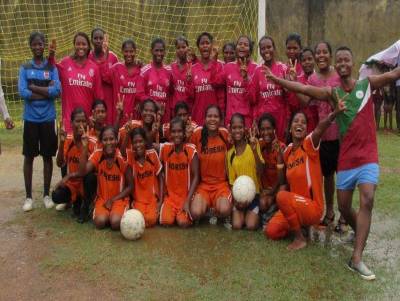Community Youth Teams facilitating participatory adolescent groups, youth leadership training and livelihood promotion to improve school enrolment, nutrition and mental health among adolescent girls
Project Summary
Jharkhand Initiative for Adolescent Health is a cluster randomised controlled trial in rural eastern India.
India is home to around 20% of the world’s adolescent girls aged 10-19 years. The Rashtriya Kishor Swasthya Karyakram (RKSK), India’s national adolescent health strategy, recommends supporting community-based peer educators to conduct group meetings with boys and girls.
The Jharkhand Initiative for Adolescent Health (JIAH) intervention aims to improve mental health, dietary diversity and school attendance among adolescent girls aged 10-19 years in rural Jharkhand, India. JIAH is aligned with RKSK.
The intervention is delivered by a community youth team comprising yuva saathis (friends of youth), youth leadership facilitators and livelihood promoters. Community youth teams conduct:
- Participatory Learning and Action (PLA) meetings with boys and girls to make changes to adolescent health across four themes: education, nutrition, violence and health
- Group-based leadership activities to build adolescents’ resilience and confidence including: football tournaments, nature walks and treks, archery and problem management sessions
- Family-based livelihood promotion activities to provide training and skills on paddy cultivation, compost-making, multi-cropping, tree-planting, kitchen gardening, farmers’ fairs, rain water harvesting and revival of local forest groups and farmers’ committees.
The JIAH intervention is being evaluated using a parallel group, two-arm, superiority cluster-RCT in 38 clusters. Intervention clusters receive all three activities and control clusters receive livelihood promotion.
In India the study is led by the civil society organization Ekjut. In the UK, the trial is supported by researchers at the UCL Institute for Global Health and the King’s College London Department of Global Health and Social Medicine.
Trial registration: ISRCTN17206016
 Close
Close


